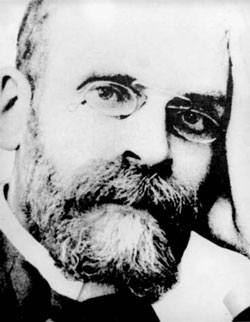"The first and fundamental rule [of sociology] is to consider social facts as things...a social fact is every way of acting which is capable of exercising an external constraint upon the individual" (The Rules of Sociological Method, 1895)
Durkheim was concerned with functional interrelations between systems of beliefs and thought and the underlying social structure.
Whilst Comte was preoccupied with finding laws of social physics, (dynamic and static), Spencer thought he had individuated laws determining the organic kind of social forms, Durkheim tries to specify what the object of sociology is. However, according to Martin Jay (1984), like Comte, Durkheim was concerned with social reality sui generis. Indeed, both Comte and Durkheim were praised by Althusser for creating the 'groundwork for critique of the subjective origins of the social whole'.
In What is a social fact? sociology is limited to the
analysis of only those laws that govern and constrain the individual
externally. The social is definitively extra-individual. According
to Durkheim, system sociology is in a crisis. Sociology is NOT a philosophy
of history that claims to discover general laws of progressive development
for the whole humanity. Sociology is NOT a metaphysics claiming to
determine the nature of society. Sociology is NOT scientia scientarum.
Sociology IS the study of SOCIAL FACTS.
Durkheimian thought was recently revived by the
Annales School through their notion of histories
of mentalities.
"The concept of totality is only the abstract form of the concept of society: it is the whole which includes all things, the supreme class which embraces all other classes" - The elementary forms of religious life

